Middle East
How do you keep going in Gaza when everything tells you to stop? | Israel-Palestine conflict
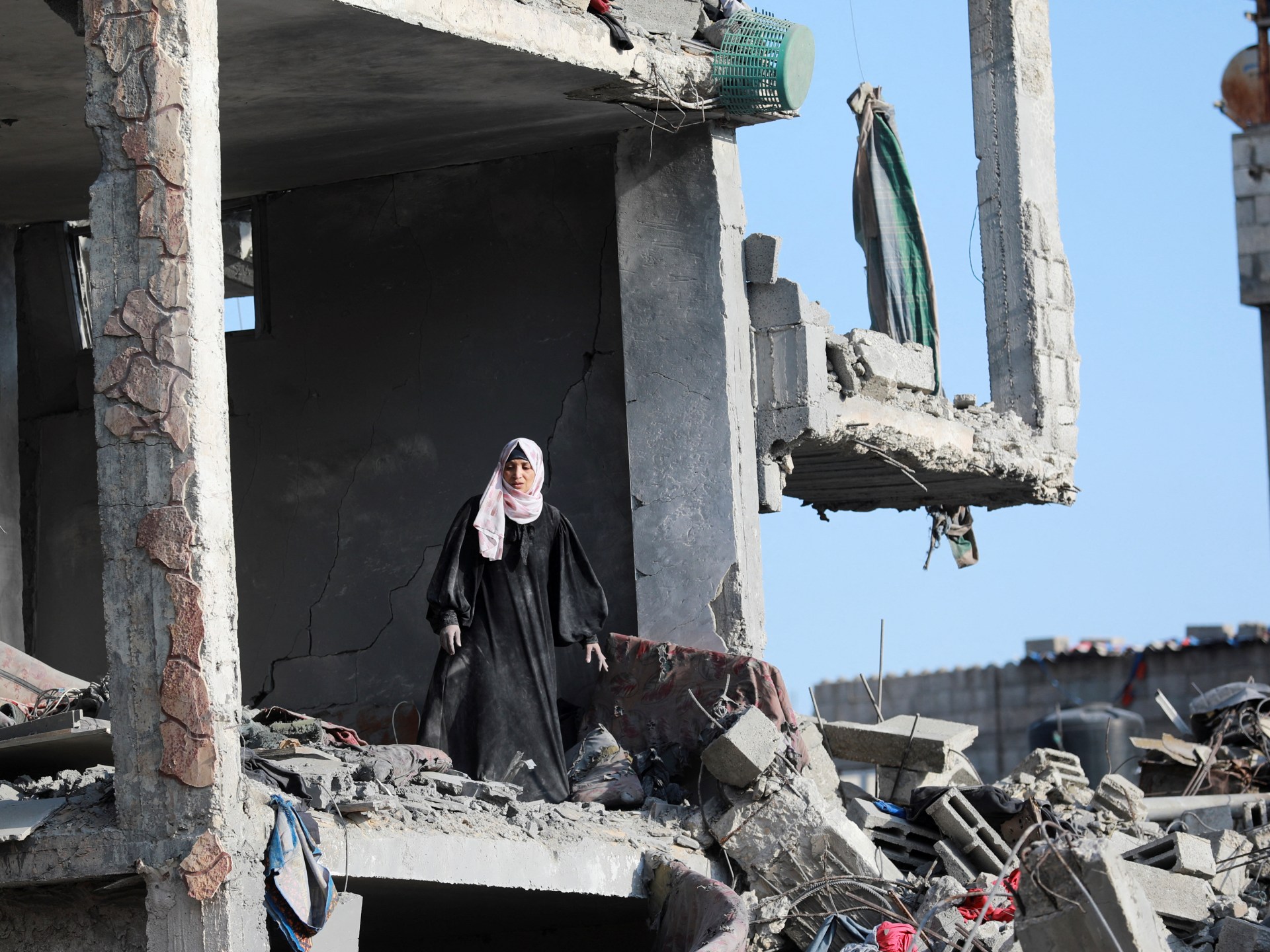
Before the war, my life was simple. Like many young women in Gaza, I carried within me a mixture of ambition and anxiety. My dream was to graduate from the Islamic University with honours and become a writer. My fear was that the constant attacks and instability in Gaza would somehow impede my pursuit of education and a writing career.
However, I never imagined that everything I knew – my home, my university, my friends, my daily routine and my health – could vanish, leaving me struggling to keep going.
When the war began, we thought it was just another short round of fighting – one of the many escalations we had grown used to in Gaza. But something about this time felt different. The explosions were closer, louder, and lasting longer. We soon realised that this nightmare was not going to end; it was only going to get worse.
On December 27, 2023, we received our first “evacuation order”. There was no time to think. We had just begun gathering a few belongings when the sound of bombing grew louder. The upper floors of the building we lived in were being targeted.
We fled the building in a hurry, carrying only a small bag. My father was pushing my grandmother in her wheelchair, while I held my younger brother’s hand and ran into the street, not knowing where we were going.
The neighbourhood looked like a scene from the horrors of the Day of Judgement: people were running, screaming, crying, and carrying what remained of their lives.
Night fell, and we found temporary shelter at a relative’s house. Sixteen of us slept in one room, without privacy or comfort.
In the morning, we made the difficult decision to take refuge in one of the displacement camps declared a “humanitarian zone”. We owned almost nothing. The weather was bitterly cold, water was scarce, and we had only a few blankets. We washed, cleaned, and cooked using primitive methods. We lit fires and prepared food as if we had gone back to the Stone Age.
Amid all of this, we received the news: our home had been bombed.
I refused to believe what I had heard. I sat and cried, unable to comprehend the tragedy. My father’s goldsmith workshop was on the ground floor of the building, so when it was destroyed, we did not just lose walls and a roof – we lost everything.
The days passed slowly and heavily, wrapped in longing and misery. I lost contact with most of my friends, and I no longer heard the voices that used to fill my days with warmth. I would check in on my closest friend, Rama, whenever I had a brief chance to connect to the internet. She lived in northern Gaza.
On January 15, 2024, my friend Rawan sent me a message. It did not reach me immediately. It took days because of the communications blackout.
The words were simple, they shattered me from the inside: “Rama was martyred.”
Rama Waleed Sham’ah, my closest friend at university. I could not believe it. I read the message over and over again, searching for a different ending, a denial. But the truth was silent, harsh, and merciless.
I didn’t get to say goodbye. I didn’t hear her last words, I didn’t hold her hand, or tell her “I love you” one last time. I felt as though I was breathing without a soul.
While I was still processing that grief, I received even more devastating news: on February 16, 2024, my father’s entire extended family – all his cousins, their wives, and their children – were killed. I saw my father break in a way I had never seen before. His grief was so deep that words could not describe it.
Then, death knocked on our door.
On June 8, 2024, we had just moved from our tent to a rented apartment, trying to start our lives over, when the Israeli army surrounded the area. I was the first to see the tank slowly moving up the street. I panicked and ran towards my father, shouting. But I didn’t reach him. In that moment, a missile struck the building we were in. All I saw was thick smoke and dust filling the air.
I didn’t know if I was alive or not. I tried to say the shahada, and by the grace of God, I managed to do so. Then I started screaming, calling for my father. I heard his voice faintly from a distance, telling me not to go out because the drone was still bombing.
I took a few steps, then lost consciousness. All I remember is that they carried me down the building and covered me with a blanket. I was bleeding. I would regain consciousness for a few seconds, then lose it again.
The ambulance could not reach our street because the tank was at the entrance. My mother, my sister, and I bled for two hours until some young men from the area managed to find a way to get us out. They carried me in a blanket to the ambulance. The paramedics started bandaging my wounds right there in the middle of the street, in front of everyone.
All the way, I heard their whispers, saying that I was between life and death. I heard them, but I could not speak.
When I reached the hospital, they told me that I had sustained injuries to my head, hands, legs, and back. The pain was unbearable, and my mother’s absence added to my fear. I was rushed in for an emergency surgery.
I survived.
After leaving the hospital, I had to go back for dressing changes. Each visit was a painful experience. I would choke every time I saw the blood. My father, who accompanied me every time, would try to ease these visits, telling me, “You will be rewarded, my dear, and we will get through all of this.”
I fell into a deep depression, suffering from both physical and emotional pain. I felt as though I was drowning in an endless spiral of sorrow, fear, and exhaustion. I no longer knew how to breathe, how to continue, or even why.
We had no roof to shelter under. Finding food was a struggle. The painful memories of loved ones who had passed haunted me. The fear that my family and I could lose our lives at any moment made me feel utterly helpless. I felt everything was screaming that I could not go on.
Yet, in the darkness of despair, I continued to live, day after day. I was in pain, but I lived.
I went back to reading – whatever books I could find. Then, when my university announced it would resume lectures online, I signed up.
My hand was still broken, wrapped in a cast, and I could barely use it. My mother helped me, holding the pen at times and writing down what I dictated. My professors understood my situation and supported me as much as they could, but the challenges were many. I struggled to access electricity and the internet to charge my phone and download lectures. Sometimes, I would lose exams due to power outages or poor network, and I would have to postpone them.
Still, I kept going. My physical condition gradually started to improve.
Today, we are still living in a tent. We struggle to secure the most basic needs, such as clean water and food. We are experiencing famine, just like everyone else in Gaza.
When I look at the scars of war etched into my body and memory, I realise that I am no longer the same person. I have found within myself a strength I never knew existed.
I have found a path through the rubble, meaning in the pain, and a reason to write, to witness, and to resist despite the loss. I have made the decision to stay alive, to love, to dream, to speak.
Because, quite simply, I deserve to live, just like every human being on earth.
The views expressed in this article are the author’s own and do not necessarily reflect Al Jazeera’s editorial stance.
Middle East
Israel plans ‘conquest’ of Gaza in expanded offensive | Israel-Palestine conflict News
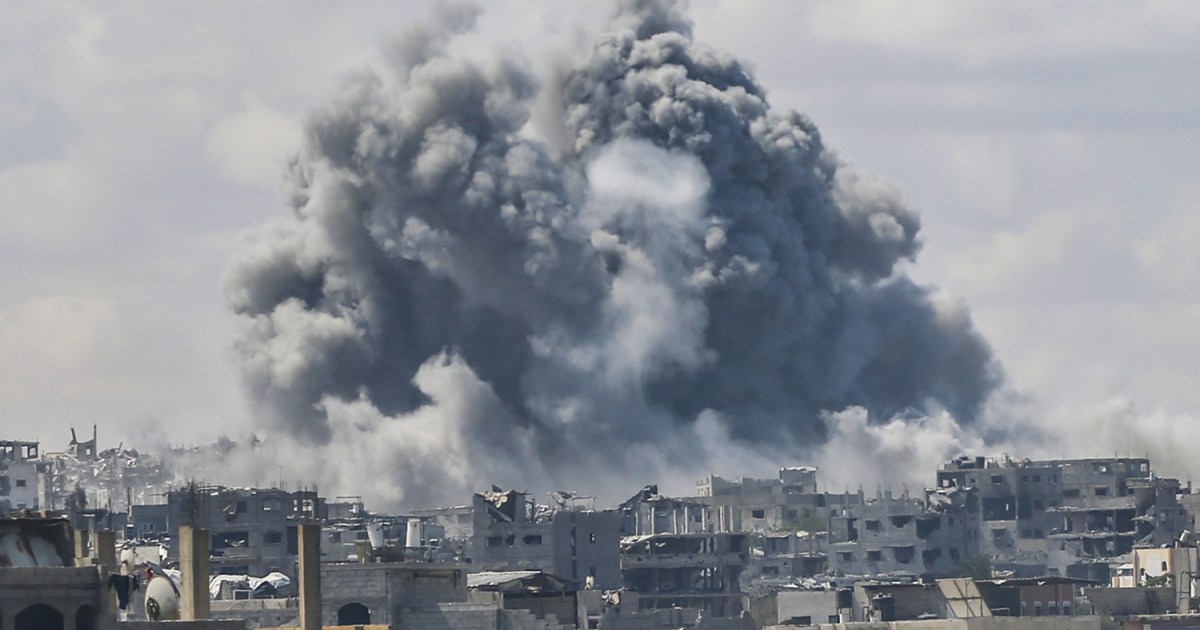
Israel’s political and military leaders have approved plans to expand the Gaza offensive and take over aid deliveries to the devastated and starving enclave, according to reports.
Prime Minister Benjamin Netanyahu’s Security Cabinet unanimously approved plans to call up reservists and put the Israeli military in charge of food and other vital supplies to the 2.3 million people suffering under its blockade of the Palestinian territory.
Newswires reported unnamed Israeli officials suggesting that the plans include the “conquest” and occupation of the entire Gaza Strip.
The expanded offensive “could go as far as seizing the entire enclave”, the Reuters news agency reported.
“The plan will include, among other things, the conquest of the Gaza Strip and the holding of the territories, moving the Gaza population south for their protection,” a source told the AFP news agency.
The source added that Netanyahu “continues to promote” United States President Donald Trump’s plan for the voluntary departure of Palestinians from the enclave.
The plan also includes the possibility of Israel taking over the provision of humanitarian aid in Gaza.
The Israeli government has rejected claims from aid groups that famine is stalking the enclave, despite having blocked the entrance of all supplies on March 2 –16 days before it resumed its war against Hamas.
Citing an unnamed Israeli official, The Times of Israel said the plan would involve “international organisations and private security contractors [handing] out boxes of food” to families in Gaza.
Israeli soldiers would provide “an outer layer of security for the private contractors and international organisations handing out the assistance”, the outlet said.
Heated
Earlier, the Israel Hayom newspaper and The Times of Israel cited sources as saying the plan would include the occupation of Gaza.
The revelations have stirred significant tension inside Israel.
Netanyahu again asserted that the goal was to “defeat” Hamas and bring back several dozen captives held in Gaza.
However, the Hostages and Missing Families Forum, an Israeli campaign group, said in a statement on Monday that the plan is “sacrificing” those still held in the Palestinian territory.
Heated disagreements also reportedly erupted during the cabinet meeting between the political and military echelons.
Army chief Eyal Zamir reportedly warned that Israel could “lose” the captives in Gaza if it pushed ahead with a full-blown military offensive.
Far-right National Security Minister Itamar Ben-Gvir said that, as Israel has done in the past two months, it should continue to block all food, water, medicine, fuel and other aid from entering Gaza to starve the population.
He also advocated for “bombing food warehouses and generators” so there are no more supplies and electricity is fully cut off.
But Zamir warned this would “endanger” Israel as it would expose the country to even more allegations of violations of international law.
“You don’t understand what you are saying. You are endangering us all. There is an international law, we are committed to it. We cannot starve the Strip, your statements are dangerous,” Samir said, according to Israel’s national broadcaster, Kan.
In an interview with Israeli Army Radio, opposition leader Yair Lapid questioned Netanyahu’s decision to mobilise tens of thousands of reservists, saying the prime minister was calling up troops and extending their service without setting a goal for the operation.
Another opposition figure, Yair Golan, said Netanyahu was only trying to save his government from collapsing as the plan “serves no security purpose and does not bring the release of the hostages closer”.
Aid in security zones as ‘military strategy’
Ben-Gvir was reportedly the only member of the Security Cabinet who opposed the plan for Israel to bypass existing aid routes by international organisations.
Israel reportedly plans to use US security contractors to control the flow of aid into Gaza.
However, the plan is not expected to come into effect immediately, as Israeli officials believe there is enough food in Gaza for now, even as Palestinians are starving to death.
The Israeli plans also envisage the establishment of a new “humanitarian zone” in southern Gaza that would work as a base for aid.
The Humanitarian Country Team (HCT), a forum that includes United Nations agencies, said on Sunday that Israeli officials were seeking its consent to deliver aid through what it described as “Israeli hubs under conditions set by the Israeli military, once the government agrees to re-open crossings”.
In a statement, the HCT said such a plan would be dangerous and would “contravene fundamental humanitarian principles and appears designed to reinforce control over life-sustaining items as a pressure tactic – as part of a military strategy”.

The coalition said the UN would not participate in this scheme as it does not adhere to the global humanitarian principles of humanity, impartiality, independence and neutrality.
That position was supported by Hamas, which on Monday branded Israel’s plans to takeover aid provision “political blackmail”.
“We reject the use of aid as a tool of political blackmail and support the UN’s stance against any arrangements that violate humanitarian principles,” the armed group said in a statement, insisting that Israel is “fully responsible” for the “humanitarian catastrophe” in Gaza.
The humanitarian organisations said their teams “remain in Gaza, ready to again scale up the delivery of critical supplies and services: food, water, health, nutrition, protection and more”.
They urged world leaders to use their influence to lift the blockade so that “significant stocks” waiting at the border could be delivered.
In February 2024, more than 100 Palestinians were killed when Israeli soldiers opened fire on desperate Palestinians waiting for trucks delivering food, in what has become known as the “flour massacre“.
The Israeli military acknowledged that it had coordinated the convoy with private contractors, rather than the UN or other humanitarian aid organisations with experience delivering food aid safely.
The US military also tried to build a $230m floating pier in May 2024, as an alternative way to deliver aid to Gaza. But the trouble-prone structure was closed months later, after only bringing in the equivalent of about one day’s worth of pre-war food deliveries.
Five people were killed in March 2024 in one of several efforts to deliver food by air drops. Humanitarian groups have said that airdrops are not able to replace the quantities needed to deliver food to more than 2 million people living in Gaza.
Middle East
UK police arrest seven Iranians over alleged threats to national security | Police News
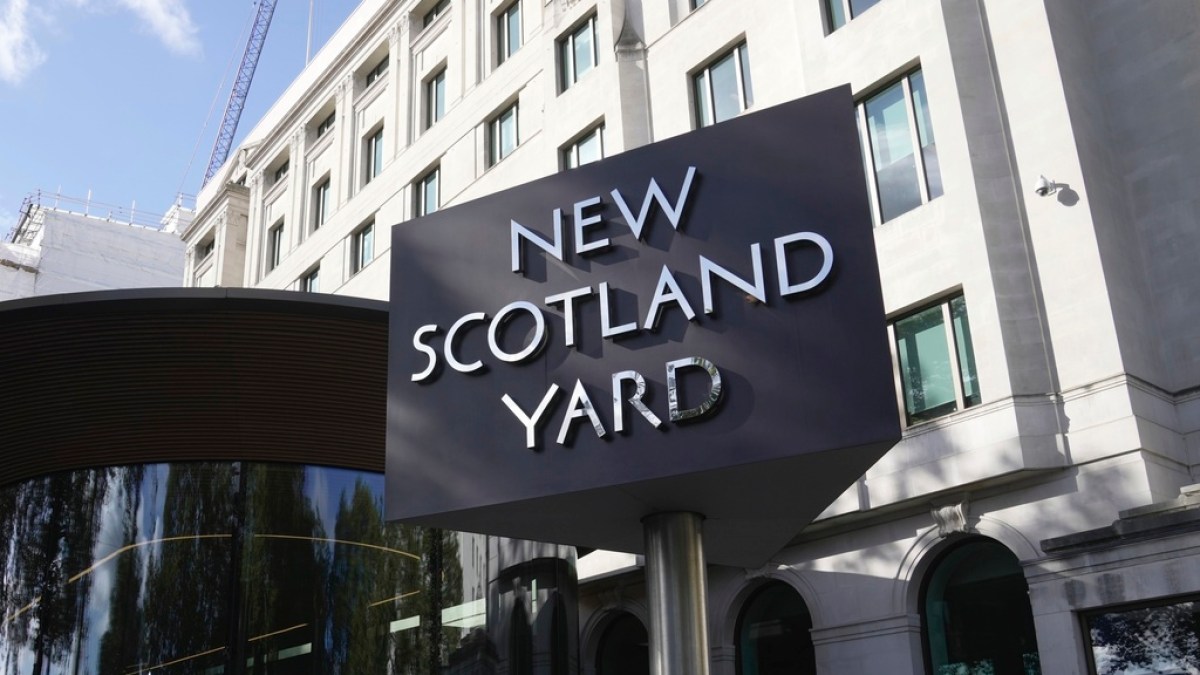
Country on high alert since MI5 warning last year about ‘potentially lethal’ Iran-backed activities.
The United Kingdom has arrested eight men, including seven Iranian nationals, as part of two investigations regarding alleged threats to national security.
London’s Metropolitan Police confirmed the arrests on Sunday, saying five men, including four of the Iranian nationals, were detained on suspicion of “preparation of a terrorist act” while the other three are being held under national security legislation introduced in 2023 to counter the actions of hostile states.
In the first operation, which took place on Saturday, counterterrorism police arrested four Iranians along with the other individual, whose nationality was still being established, in London, Swindon and the Greater Manchester area in relation to “a suspected plot to target a specific premises”.
The five men were aged 29 to 46. The four Iranians were arrested under the Terrorism Act while the fifth man was detained under the Police and Criminal Evidence Act.
“This is a fast-moving investigation,” Metropolitan Police counterterrorism chief Dominic Murphy said, adding that police were exploring “various lines of enquiry to establish any potential motivation as well as to identify whether there may be any further risk to the public linked to this matter”.
In the second operation, which took place on the same day, counterterrorism police arrested three Iranian nationals aged 39, 44 and 55 in London under the National Security Act, which gives law enforcement greater powers to disrupt “state threats”, including foreign interference and espionage.
The Metropolitan Police said on Sunday that the three London arrests were “not connected to the arrest of five people yesterday”.
Home Secretary Yvette Cooper described the threats as “serious”, saying the government was working with police and intelligence agencies to “keep the country safe”.
The arrests were made amid heightened concerns about Iranian operations on UK soil after the head of Britain’s MI5 domestic intelligence service said last year that the UK had uncovered 20 Iran-backed plots posing “potentially lethal threats” since 2022.
In 2023, an Austrian national was convicted of carrying out “hostile reconnaissance” against the London headquarters of Iran International, a broadcaster that is critical of Iran’s government.
The following year, a British journalist of Iranian origin who worked for Iran International was stabbed in London.
In February a former British soldier was sentenced to 14 years in prison after being found guilty of spying for Iran.
Iran has repeatedly rejected suggestions that it has been behind plots to attack the UK.
In March, Tehran summoned the British ambassador in response to the accusations and conveyed a formal protest.
And in October, Iranian Ministry of Foreign Affairs spokesperson Esmaeil Baghaei accused the UK of hosting “terrorist” groups that promote violence.
Middle East
NGO in talks with Malta to repair Gaza-bound aid ship ‘attacked by Israel’ | Gaza News

Ship hit by two drones near Malta on Friday; NGO blames Israel for attack.
An international NGO that intends to deliver humanitarian aid to Gaza by sea has said it was in talks with Malta’s government about allowing a vessel to enter Maltese waters to repair damage caused by a drone attack.
The ship named Conscience, operated by the Freedom Flotilla Coalition (FFC), suffered damage to its front section including a loss of power when it was hit by two drones just outside Maltese territorial waters in the central Mediterranean early on Friday, the NGO said on Sunday.
The coalition, an international non-governmental group, said Israel, which has blockaded and bombarded Gaza, was to blame for the incident.
#FreedomFlotilla Press statement 04-05-2025 : “we received a very welcome update from the government of Malta@MaltaGov, with a stated intent to provide logistical supports and potential repairs to our ship, the ‘Conscience’….’ (read more…)https://t.co/PVk6qjJsM3
— Freedom Flotilla Coalition (@GazaFFlotilla) May 4, 2025
The Conscience, which set off from Tunisia, had been waiting to take on board some 30 peace activists from around the world before trying to sail to Gaza in the eastern Mediterranean. The ship had been seeking to deliver aid including food and medicines to the besieged enclave, where aid groups warn people are struggling to survive following a two-month total blockade by Israel.
Swedish activist Greta Thunberg said she was in Malta and had been planning to board the ship as part of the flotilla.
Prime Minister Robert Abela said on Sunday that Malta was prepared to assist the ship with necessary repairs so that it could continue on its journey, once it was satisfied that the vessel held only humanitarian aid.
Coalition officials said on Sunday that the ship was in no danger of sinking, but that they wanted to be sure it would be safe from further attacks while undergoing repairs, and able to sail out again.
Earlier on Sunday, the coalition had accused Malta of impeding access to its ship. Malta denied the claim, saying the crew had refused assistance and even refused to allow a surveyor on board to assess the damage.
“The FFC would like to clarify our commitment to engagement with [Maltese] authorities to expedite the temporary docking of our ship for repairs and surveyors, so we can continue on the urgent humanitarian mission to Gaza,” the coalition said in a statement later in the day.
A Malta government spokesman said its offer was to assist in repairs out at sea once the boat’s cargo was verified to be aid.
Coalition officials said the surveyor was welcome to board as part of a deal being negotiated with Malta.
Israel halted humanitarian aid to Gaza two months ago, shortly before it broke a ceasefire and restarted its war against Hamas, which has devastated the Palestinian enclave and killed more than 51,000 people.
Another NGO ship on a similar mission to Gaza in 2010 was stopped and boarded by Israeli troops, and nine activists were killed. Other such ships have similarly been stopped and boarded, with activists arrested.
Hamas issued a statement about the incident off Malta, accusing Israel of “piracy” and “state terrorism”.
-
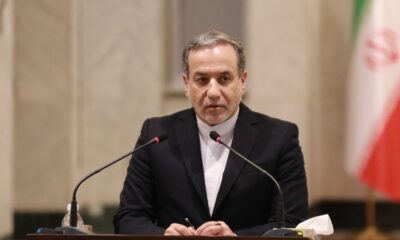
 Middle East2 days ago
Middle East2 days agoIran reasserts uranium enrichment rights as further US talks delayed | Nuclear Energy News
-

 Europe2 days ago
Europe2 days agoDetained Harvard researcher Kseniia Petrova says she didn’t lie to government
-
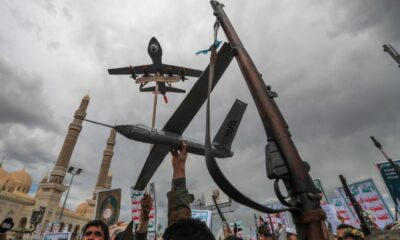
 Conflict Zones2 days ago
Conflict Zones2 days agoHouthis maintain pressure on Israel as US launches more strikes on Yemen | Politics News
-
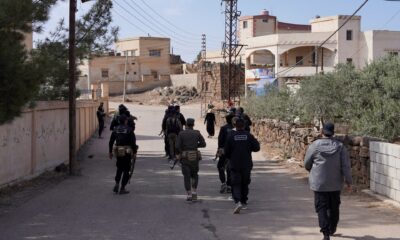
 Middle East2 days ago
Middle East2 days agoIsraeli attacks kill two more as Syria government reaches deal with Druze | News
-

 Sports1 day ago
Sports1 day agoRoger Clemens: Red Sox great watches son Kody hit Fenway Park home run – for the Minnesota Twins
-

 Middle East1 day ago
Middle East1 day agoCanelo Alvarez beats Scull to reclaim undisputed super-middleweight title | Boxing News
-
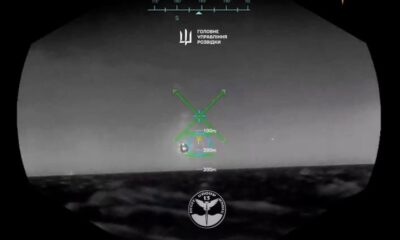
 Europe1 day ago
Europe1 day agoUkraine claims it destroyed Russian fighter jet using seaborne drone for the first time
-

 Europe2 days ago
Europe2 days agoTrump draws criticism with AI image of himself as the pope ahead of the papal conclave




